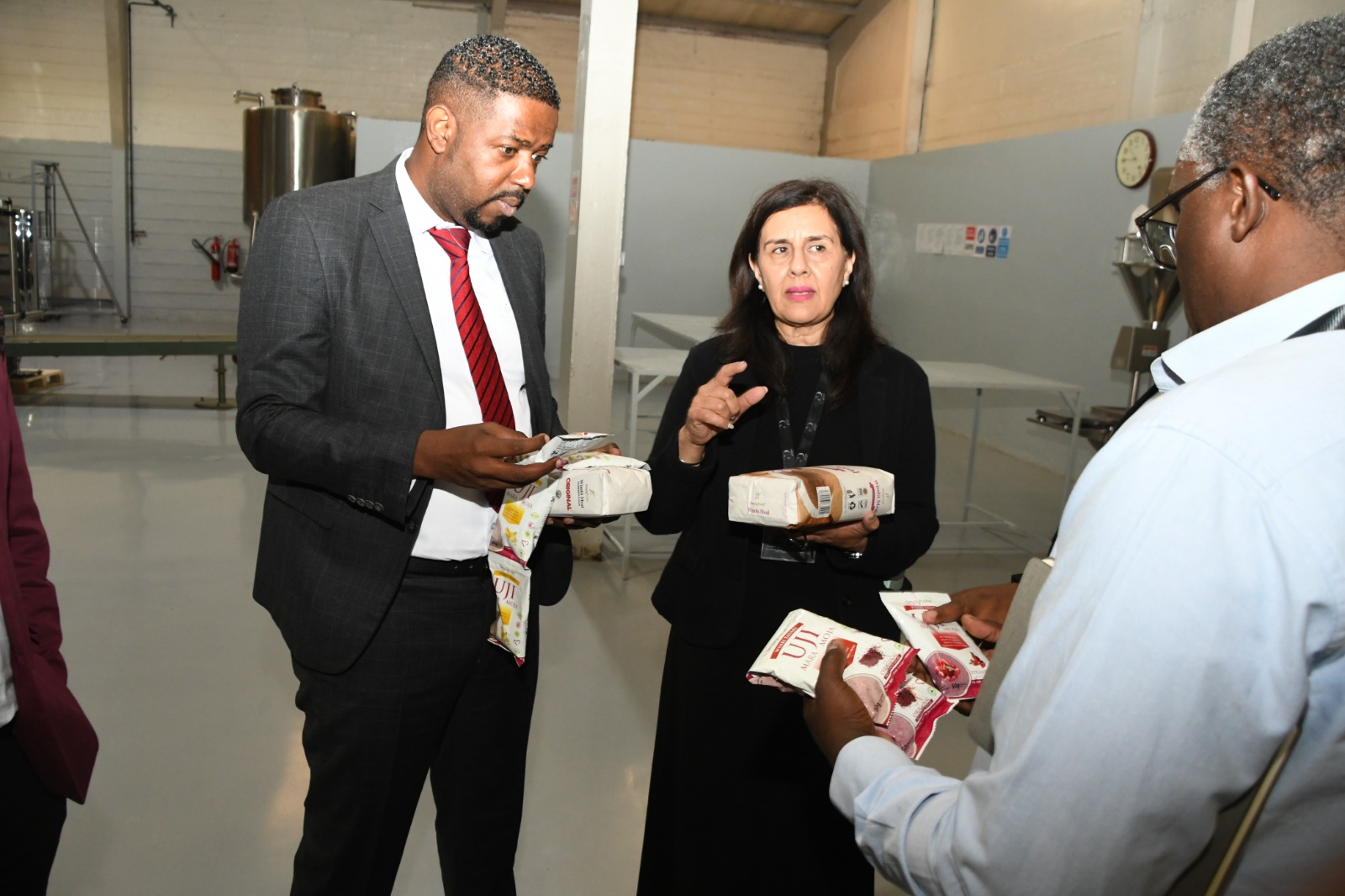Government Eyes Publishing Sector Reforms to Boost Investment and Local Industry
NAIROBI, Kenya – Wednesday, May 28, 2025
The government plans to initiate targeted reforms in Kenya’s publishing industry to promote investment in the sector. This followed a strategic meeting between the Principal Secretary for Investment Promotion Mr. Abubakar Hassan Abubakar and the leadership of the English Press Limited.
The engagement is part of government’s broader strategy of fostering public-private partnerships to stimulate local investment in high-potential sectors. The strategy entails listening to and addressing sector-specific concerns in order to strengthen the role of local enterprises in driving economic growth, job creation and service delivery.
At the event, the English Press outlined a number of pressing issues that undermine the viability and growth of the publishing sector. The company raised concern over the payment model of 20-60-20 implemented by the Kenya Institute of Curriculum Development (KICD).
In a presentation to PS Abubakar, the firm's Chief Executive Officer Kaplan Patel explained that while the structure appeared systematic, it created severe cash flow problems. Under this arrangement, publishers receive only 20 percent of the payment at the onset of a contract, 60 percent after delivering 80 percent of the books and the final 20 percent upon confirmation of receipt by schools. These staggered payments, more often than not, took several months to complete, leaving firms with no option but to seek high-interest loans to meet immediate financial obligations such as salaries, procurement of materials and operational costs.
Compounding the situation was the lengthy order confirmation timelines which he noted, undermined planning leading to overstocking and tying up of working capital or stock shortages that stall production. The firm identified delays caused by third-party transport providers since KICD requires delivery notes to initiate payments.
The meeting, held at English Press headquarters in Nairobi, highlighted the company’s five-decade legacy in educational publishing and its technical capacity to print millions of textbooks annually. The firm has cultivated strong partnerships with government institutions, particularly KICD and continues to expand organically despite mounting operational challenges. They identified the shift towards digital content as eroding the demand for printed books, creating further pressure on traditional print businesses.
In light of these challenges, the company appealed to the government to consider a number of policy interventions including exemption of value-added tax on textbooks supplied to public schools, faster processing of zero-rated VAT refunds for exporters, the removal of excise duty on essential inputs such as ink and printing paper and the establishment of a consistent regulatory environment that fosters long-term investment planning. These reforms they said would significantly improve cash flow, ease the cost of doing business and restore competitiveness in a rapidly evolving market.
In response, PS Hassan Abubakar assured the firm of government’s support to investors and pledged to escalate the issues raised to relevant regulators. “We are committed to supporting enterprises that are aligned with the government’s development agenda. These engagements are not about ticking boxes, but are about identifying tangible solutions that unlock investment and build capacity for growth,” he said.
Beyond publishing, the PS was also briefed on English Press’s ongoing Corporate Social Responsibility initiative that ties into climate resilience and food security. The firm previously ran an ‘uji’ school feeding programme in arid areas but following budget cuts, the programme evolved into a more sustainable model. Today, in partnership with Farm to Market Alliance (FTMA), English Press supports farmers in millet production, providing processing capacity at its in-house facility. The millet is processed into both flour and a ready-to-consume instant uji product.
The millet initiative, has already been lauded for its circular economy approach and was certified 100 percent pure during the United Nations Year of Millets in 2023. It represents a strategic response to global warming and food insecurity while creating market opportunities for smallholder farmers. The company has now requested government support in gaining access to supermarket retail chains for its millet-based products.

